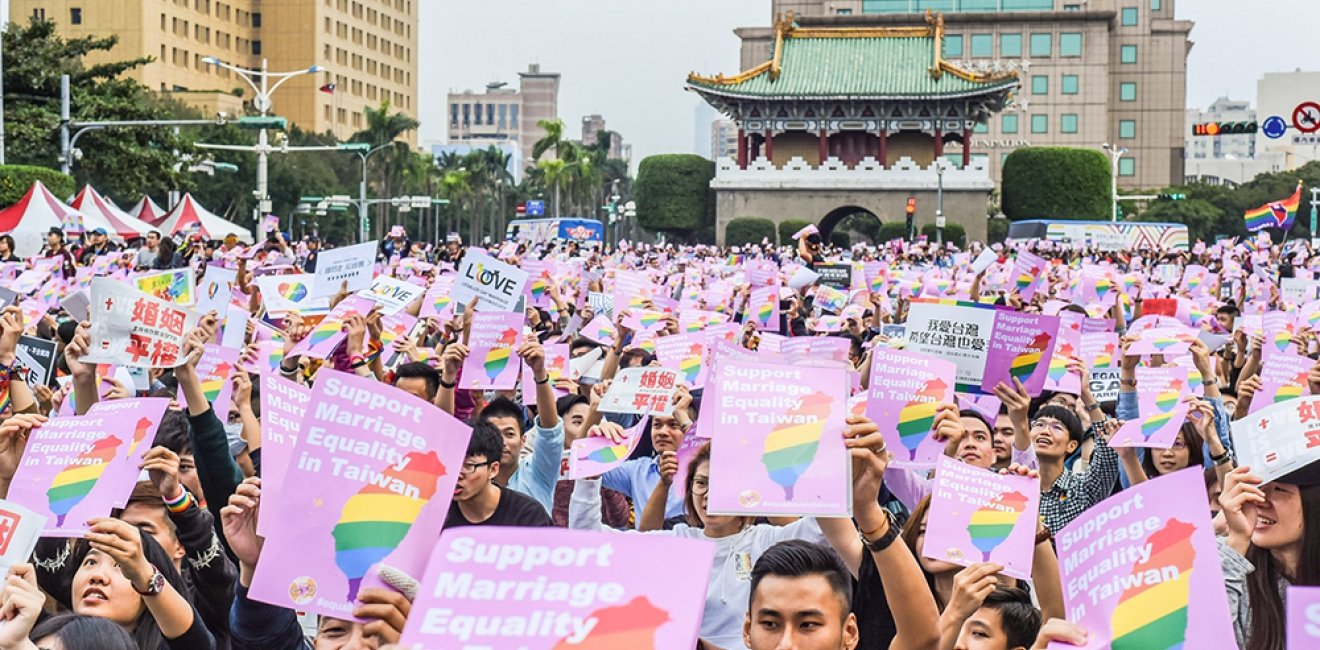
A blog of the Indo-Pacific Program
Article Fourteen of the Japanese Constitution enshrines equality before the law regardless of "race, creed, sex, social status or family origin." Article Fifteen of the Indian Constitution guarantees a right to equality no matter an individual’s “religion, race, caste, sex or place of birth.” Even the People’s Republic of China includes a constitutional provision that promises its citizens legal equality. Regardless of how these different tenents have actually manifested in practice, they all point to a shared ideological recognition: that equality is a veritable feature of institutional modernity. However, in an age where our news outlets have become saturated with tragic stories of conflict, discrimination, and racialized violence, many observers have begun to question if equality is in fact a constitutional right or just another political buzzword for pundits to exploit. While the latter may still be true, the Indo-Pacific Region in recent years has given us ample reason to think otherwise. As such, in honor of Pride Month, now is the time to celebrate two historic expansions to queer rights led by our Eastern counterparts: first, India’s decriminalization of homosexuality in 2018 and second, the Government of Taiwan’s legalization of same-sex marriage.
Navtej Singh Johar v. Union of India
At this time last year, the famed Indian dancer and choreographer Navtej Singh Johar joined a team of attorneys as they prepared statements to be heard in front of the Indian Supreme Court. Their objective? To strike down Section 377 of the Indian Penal Code, a British Colonial era statute that criminalized acts “against the order of nature.” While textually broad, contemporary interpretations of this law have made sodomy illegal and homosexuality, taboo.
Up to this moment, the Indian legal treatment of queerness had been far from linear. In 2009, the Delhi High Court ruled that it was a violation of fundamental liberties to criminalize consensual homosexual intercourse. Then, just four years later, the Supreme Court overturned this ruling and reinstated Section 377 in full force. However, in another dramatic flip, the Supreme Court agreed to relitigate this previous ruling in Navtej Singh Johar v. Union of India. After a month of deliberations and over a century of disenfranchisement, the Supreme Court ultimately delivered its unanimous opinion to decriminalize homosexuality and strike down portions of the antiquated penal code. Queer communities around the country and the world erupted into rainbow-colored celebrations as Chief Justice Mishra declared, “Let us move from darkness to light, from bigotry to tolerance and from the winter of mere survival to the spring of life ― as the herald of a New India ― to a more inclusive society."
Enforcement Act of Judicial Yuan Interpretation No. 748
And indeed they did, however, they were not alone in this noble transformation. Less than a year before, the government of Taiwan’s highest court had ruled that heteronormative marital laws were unconstitutional. But not only this, the court also mandated that its legislatures rewrite these rules to include same-sex marriages. At first, this ruling suggested immense promise for immediate change. However, the Legislative branch faced crippling polarization as opposition from conservative and Christian groups voiced their dissent. Consequently, the government was forced to hold a series of referendums in November of 2018. In the end, queer Taiwanese leaders wept as polls showed that 67% of voters opposed a substantive change to the heteronormative legal definition of marriage. However, unfazed, but perhaps in conflict with the spirit of democracy, the Taiwanese government agreed to leave the existing definition of marriage untouched and instead draft an entirely new bill for same-sex nuptials. The fruits of their labor took shape on May 17th, 2019 as the legislatures of Taiwan enacted into law Enforcement Act of Judicial Yuan Interpretation No. 748, thereby legalizing same-sex marriages, granting limited adoption rights, and ultimately, becoming the first government in Asia to recognize these unions.
An examination of queer rights in the Indo-Pacific is an incremental and gradual process. Any event or case study drawn from this narrative is defined by its context. However, the manner through which you choose to interpret these conditions can take many paths. Ultimately, it is the accumulation of those pathways that allows us to meaningfully return to a "singular" understanding of the regional LGBTQ+ movement, not as an expression of any one interpretation, but rather as a mosaic of informational points bound together by different and sometimes competing narratives. In other words, the story of decriminalizing homosexuality in India and legalizing same-sex marriage in the government of Taiwan may suggest a liberalization of the region, but these assumptions must be balanced with other accounts like the Brunei government’s recent threat to punish homosexual sodomy with execution by stoning. As such, it is premature to declare the presence of a coordinated transnational LGBTQ+ movement monolithically approaching greater expressive liberties. Nonetheless, policymakers still have much to gain from an awareness of these larger cultural shifts that often fall outside the scope of traditional economic and security-focused discourse.
Image: weniliou / Shutterstock.com
Hyungtae Kim (they/them) is a rising senior at the University of Pennsylvania studying history and a submatriculated master’s degree candidate at Penn Law. Currently, they are an intern with the Korea Center. Follow the @Korea_Center on Twitter.
The views expressed are the author's alone, and do not represent the views of the U.S. Government or the Wilson Center. Copyright 2019, Asia Program. All rights reserved.
Author

Indo-Pacific Program
The Indo-Pacific Program promotes policy debate and intellectual discussions on US interests in the Asia-Pacific as well as political, economic, security, and social issues relating to the world’s most populous and economically dynamic region. Read more





